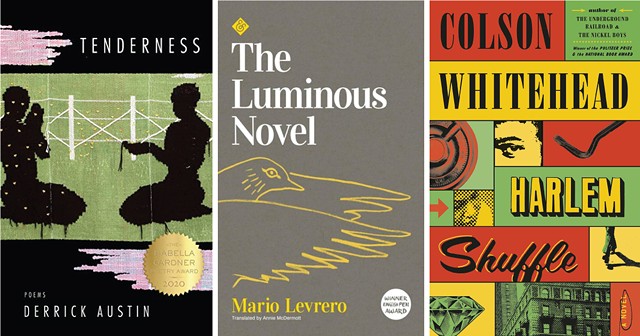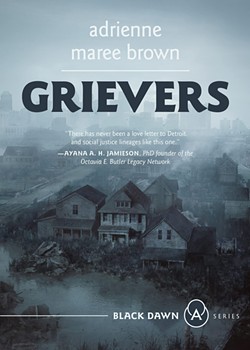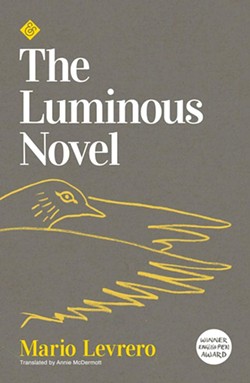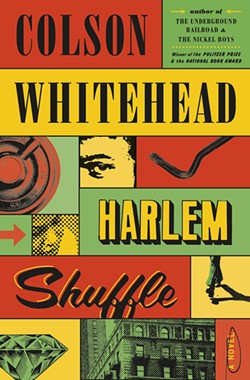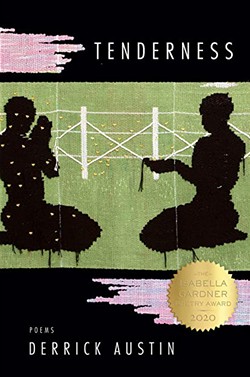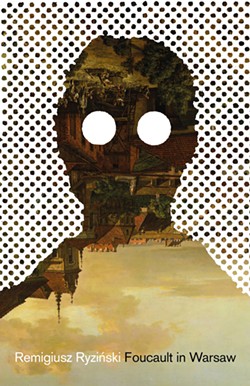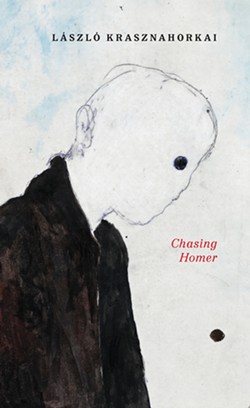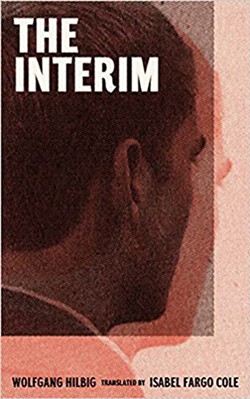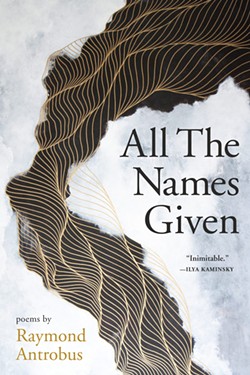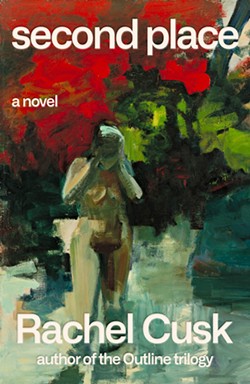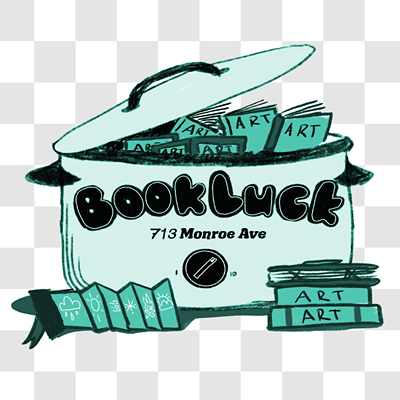[
{
"name": "500x250 Ad",
"insertPoint": "5",
"component": "15667920",
"parentWrapperClass": "",
"requiredCountToDisplay": "1"
}
]
I was working as a literary arts coordinator when the pandemic hit, and a huge part of the job was recommending books to customers and working with small press publishers to ensure their work wasn’t pushed to the margins.
Readers, even the most avid, suddenly had a shorter attention span for books. They wanted content that was light, hopeful, or educational. Stress and despair damn near anesthetized them to great literature.
On the marketing end of things, this meant pushing novellas to book clubs under labels like “Short Books for Short Attention Spans.” Sure, reading interests change by season. I mean, nobody brings Tolstoy to the beach! But this was something altogether different. And, if I’m being honest, I was plagued by stagnation as well.
How do you get numbed minds, including your own, to open a book again?
My personal hacks for finding new, incredible works that inspire are these: pay attention to specific publishers, seek out the works that established authors you revere are talking about, and look for books by authors who will be visiting Rochester in the coming months.
Let’s hit it:
“Grievers” by Adrienne Maree Brown (Sept. 7)
The number of Rochester readers devouring the works of Adrienne Maree Brown is impressive — and I’m excited by the love publisher AK Press receives by default.
Now, the author of “Pleasure Activism,” “Emergent Strategy,” and “We Will Not Cancel Us” has a new book — but this is going to be something different.
“Grievers” is Brown’s debut novella and kicks off the press’s new speculative fiction series, “Black Dawn.”
American Book Award winner Tananarive Due calls Brown “one of our most important voices in Afrofuturism and true-life worldbuilding and says of her latest work, “Grievers could not be more timely, tackling loss, plague, gentrification, memory and grief with a path toward hope in a future Detroit. Each paragraph is lovingly crafted, a story unto itself, blending into a tapestry no reader will soon forget.”
“The Luminous Novel” by Mario Levrero, translated by Annie McDermott
Just as film buffs trust production companies that consistently put out award-winning movies, some readers trust a small, niche publisher with a solid rep. I would definitely recommend getting a subscription to a small press like And Other Stories, which in August published “The Luminous Novel” by Mario Levrero.
It’s easy to see why the book won an English Pen Award. I found myself laughing aloud while reading it in public. The Uruguayan author masters hilarious and light absurdities, in particular the defeatist diary entries of a writer who attempts to finish a novel after receiving a Guggenheim grant.
And Other Stories says: “Insomniacs, romantics and anyone who’s ever written (or failed to write) will fall in love with this compelling masterpiece told by a true original, with all his infuriating faults, charming wit and intriguing musings.”
“Harlem Shuffle” by Colson Whitehead (Sept. 14)
Likely to be the next best-selling novel this fall is Colson Whitehead’s “Harlem Shuffle,” the follow-up to his 2019 novel “The Nickel Boys,” which earned him his second Pulitzer Prize for Fiction.
Whitehead’s myriad achievements and awards make this such an easy and obvious recommendation. I’d suggest getting a book club going pre-pub date.
The publisher writes: “Harlem Shuffle’s ingenious story plays out in a beautifully recreated New York City of the early 1960s. It’s a family saga masquerading as a crime novel, a hilarious morality play, a social novel about race and power, and ultimately a love letter to Harlem.”
“Tenderness” by Derrick Austin (Sept. 21)
I always keep an eye on BOA Editions, a Rochester-based small press that’s highly acclaimed, particularly when it comes to poetry.
Derrick Austin’s previously published “Trouble the Water,” a collection of poems capturing the Black queer experience, won the A. Poulin Jr. Poetry Prize. His new collection, “Tenderness,” won the 2021 Isabella Gardner Poetry Award.
The publisher calls the new poems lush and meditative and says they “examine the fraught nature of intimacy in a nation poisoned by anti-Blackness and homophobia.
“Even amidst sorrow and pain, ‘Tenderness’ uplifts communal spaces as sites of resistance and healing, wonders at the restorative powers of art and erotic love, and celebrates the capaciousness of friendship.”
“Foucault in Warsaw” by Remigiusz Ryzinski
Another Rochester small-press gem is Open Letter Books of the University of Rochester. Open Letter primarily publishes literature in translation and has brought countless foreign authors and poets to our city. They’re exactly what I’m talking about when I say you should get a subscription to a small press that won’t disappoint.
“Foucault in Warsaw,” published in June, is an adventurous and philosophical nonfiction account of Michael Foucault’s time in Poland in the late 1950s, when he became involved in the gay community and was subsequently confronted by the secret police and forced to leave.
As the first page reads, “The hero of this book is Michel Foucault. But not only him. Warsaw is, too.”
“Chasing Homer” by László Krasznahorkai (Nov. 2)
New Directions press is the chef’s kiss of contemporary avant garde literature in translation, with gorgeous covers to boot. But the master of melancholy, Hungarian author László Kraznahorkai, is perhaps, arguably, one of the greatest literary giants of our time.
He has a cult following — a cult of which I’m a part — that is ready to drink the punch. He’s perhaps best-known for his novel “Sátántangó”, which Hungarian director Béla Tarr adapted into a seven-and-a-half hour film. (Fun fact: The Dryden played the adaptation in its entirety in 2019, without an intermission, which almost never happens.)
“Chasing Homer” seems to have its own rhythm to it. The publisher describes it as “a classic escape nightmare . . . sped on not only by Krasznahorkai’s signature velocity, but also by a unique musical score and intense illustrations.” Buckle up.
“The Interim” by Wolfgang Hilbig (Nov. 2)
If we were looking for the broken, tormented writer of the 21st century, with all the vices of the trope to boot, Hilbig is it.
Hilbig has five novels published by Two Lines and “The Interim,” which takes place in postwar Germany, is his supposed masterpiece. The novel follows C., an acclaimed East German writer who frequents bars and brothels and travels between two Germanys both literally and metaphorically with an expired visa.
If you’re one of those aforementioned numb readers, C.’s frustrations with waning intellectual curiosity and dulled creativity will speak to you.
“All the Names Given” by Raymond Antrobus (Nov. 9)
Did you know we’ve had a Tin House editor hanging out in Rochester for the past year?
Elizabeth DeMeo, associate editor of the acclaimed publishing house, was the first person to put Raymond Antrobus in my hands. I fell in love with his lyrical collection of poetry “Perseverance,” which won the Ted Hughes Award, the Rathbones Folio Prize, and the Somerset Maugham Award, and was shortlisted for so many more.
So I was thrilled to have gotten my hands on an advanced reader copy of “All the Names Given.” Antrobus takes us around the globe, from England, South Africa, Jamaica, and the American south, as he reckons with his own ancestry, conflicting racial and cultural identities, and chronicles the damages of colonialism.
“Second Place” by Rachel Cusk
I fell in love with Rachel Cusks’ “Outline” trilogy last year, but recommending it gets complicated when people ask, “What’s it about?” That’s because it’s brilliantly plotless.
“Second Place,” which came out in May but is perfect fall reading, isn’t exactly plotless. M is a young mother seeking freedom and autonomy — like we do, sigh, — who invites a famous artist to her guesthouse and comes to believe his vision might crack the mystery of her life.
Cusk grabs you with her first line and doesn’t let go: “I once told you, Jeffers, about the time I met the devil on a train leaving Paris, and about how after that meeting the evil that usually lies undisturbed beneath the surface of things rose up and disgorged itself over every part of life.”
Rachel Crawford is a literary contributor for CITY. Feedback on this story can be directed to Rebecca Rafferty, CITY's life editor, at [email protected].
Readers, even the most avid, suddenly had a shorter attention span for books. They wanted content that was light, hopeful, or educational. Stress and despair damn near anesthetized them to great literature.
On the marketing end of things, this meant pushing novellas to book clubs under labels like “Short Books for Short Attention Spans.” Sure, reading interests change by season. I mean, nobody brings Tolstoy to the beach! But this was something altogether different. And, if I’m being honest, I was plagued by stagnation as well.
How do you get numbed minds, including your own, to open a book again?
My personal hacks for finding new, incredible works that inspire are these: pay attention to specific publishers, seek out the works that established authors you revere are talking about, and look for books by authors who will be visiting Rochester in the coming months.
Let’s hit it:
“Grievers” by Adrienne Maree Brown (Sept. 7)
The number of Rochester readers devouring the works of Adrienne Maree Brown is impressive — and I’m excited by the love publisher AK Press receives by default.
Now, the author of “Pleasure Activism,” “Emergent Strategy,” and “We Will Not Cancel Us” has a new book — but this is going to be something different.
“Grievers” is Brown’s debut novella and kicks off the press’s new speculative fiction series, “Black Dawn.”
American Book Award winner Tananarive Due calls Brown “one of our most important voices in Afrofuturism and true-life worldbuilding and says of her latest work, “Grievers could not be more timely, tackling loss, plague, gentrification, memory and grief with a path toward hope in a future Detroit. Each paragraph is lovingly crafted, a story unto itself, blending into a tapestry no reader will soon forget.”
“The Luminous Novel” by Mario Levrero, translated by Annie McDermott
Just as film buffs trust production companies that consistently put out award-winning movies, some readers trust a small, niche publisher with a solid rep. I would definitely recommend getting a subscription to a small press like And Other Stories, which in August published “The Luminous Novel” by Mario Levrero.
It’s easy to see why the book won an English Pen Award. I found myself laughing aloud while reading it in public. The Uruguayan author masters hilarious and light absurdities, in particular the defeatist diary entries of a writer who attempts to finish a novel after receiving a Guggenheim grant.
And Other Stories says: “Insomniacs, romantics and anyone who’s ever written (or failed to write) will fall in love with this compelling masterpiece told by a true original, with all his infuriating faults, charming wit and intriguing musings.”
“Harlem Shuffle” by Colson Whitehead (Sept. 14)
Likely to be the next best-selling novel this fall is Colson Whitehead’s “Harlem Shuffle,” the follow-up to his 2019 novel “The Nickel Boys,” which earned him his second Pulitzer Prize for Fiction.
Whitehead’s myriad achievements and awards make this such an easy and obvious recommendation. I’d suggest getting a book club going pre-pub date.
The publisher writes: “Harlem Shuffle’s ingenious story plays out in a beautifully recreated New York City of the early 1960s. It’s a family saga masquerading as a crime novel, a hilarious morality play, a social novel about race and power, and ultimately a love letter to Harlem.”
“Tenderness” by Derrick Austin (Sept. 21)
I always keep an eye on BOA Editions, a Rochester-based small press that’s highly acclaimed, particularly when it comes to poetry.
Derrick Austin’s previously published “Trouble the Water,” a collection of poems capturing the Black queer experience, won the A. Poulin Jr. Poetry Prize. His new collection, “Tenderness,” won the 2021 Isabella Gardner Poetry Award.
The publisher calls the new poems lush and meditative and says they “examine the fraught nature of intimacy in a nation poisoned by anti-Blackness and homophobia.
“Even amidst sorrow and pain, ‘Tenderness’ uplifts communal spaces as sites of resistance and healing, wonders at the restorative powers of art and erotic love, and celebrates the capaciousness of friendship.”
“Foucault in Warsaw” by Remigiusz Ryzinski
Another Rochester small-press gem is Open Letter Books of the University of Rochester. Open Letter primarily publishes literature in translation and has brought countless foreign authors and poets to our city. They’re exactly what I’m talking about when I say you should get a subscription to a small press that won’t disappoint.
“Foucault in Warsaw,” published in June, is an adventurous and philosophical nonfiction account of Michael Foucault’s time in Poland in the late 1950s, when he became involved in the gay community and was subsequently confronted by the secret police and forced to leave.
As the first page reads, “The hero of this book is Michel Foucault. But not only him. Warsaw is, too.”
“Chasing Homer” by László Krasznahorkai (Nov. 2)
New Directions press is the chef’s kiss of contemporary avant garde literature in translation, with gorgeous covers to boot. But the master of melancholy, Hungarian author László Kraznahorkai, is perhaps, arguably, one of the greatest literary giants of our time.
He has a cult following — a cult of which I’m a part — that is ready to drink the punch. He’s perhaps best-known for his novel “Sátántangó”, which Hungarian director Béla Tarr adapted into a seven-and-a-half hour film. (Fun fact: The Dryden played the adaptation in its entirety in 2019, without an intermission, which almost never happens.)
“Chasing Homer” seems to have its own rhythm to it. The publisher describes it as “a classic escape nightmare . . . sped on not only by Krasznahorkai’s signature velocity, but also by a unique musical score and intense illustrations.” Buckle up.
“The Interim” by Wolfgang Hilbig (Nov. 2)
If we were looking for the broken, tormented writer of the 21st century, with all the vices of the trope to boot, Hilbig is it.
Hilbig has five novels published by Two Lines and “The Interim,” which takes place in postwar Germany, is his supposed masterpiece. The novel follows C., an acclaimed East German writer who frequents bars and brothels and travels between two Germanys both literally and metaphorically with an expired visa.
If you’re one of those aforementioned numb readers, C.’s frustrations with waning intellectual curiosity and dulled creativity will speak to you.
“All the Names Given” by Raymond Antrobus (Nov. 9)
Did you know we’ve had a Tin House editor hanging out in Rochester for the past year?
Elizabeth DeMeo, associate editor of the acclaimed publishing house, was the first person to put Raymond Antrobus in my hands. I fell in love with his lyrical collection of poetry “Perseverance,” which won the Ted Hughes Award, the Rathbones Folio Prize, and the Somerset Maugham Award, and was shortlisted for so many more.
So I was thrilled to have gotten my hands on an advanced reader copy of “All the Names Given.” Antrobus takes us around the globe, from England, South Africa, Jamaica, and the American south, as he reckons with his own ancestry, conflicting racial and cultural identities, and chronicles the damages of colonialism.
“Second Place” by Rachel Cusk
I fell in love with Rachel Cusks’ “Outline” trilogy last year, but recommending it gets complicated when people ask, “What’s it about?” That’s because it’s brilliantly plotless.
“Second Place,” which came out in May but is perfect fall reading, isn’t exactly plotless. M is a young mother seeking freedom and autonomy — like we do, sigh, — who invites a famous artist to her guesthouse and comes to believe his vision might crack the mystery of her life.
Cusk grabs you with her first line and doesn’t let go: “I once told you, Jeffers, about the time I met the devil on a train leaving Paris, and about how after that meeting the evil that usually lies undisturbed beneath the surface of things rose up and disgorged itself over every part of life.”
Rachel Crawford is a literary contributor for CITY. Feedback on this story can be directed to Rebecca Rafferty, CITY's life editor, at [email protected].
Speaking of...
-

Poetry and pistols
Nov 11, 2022 -
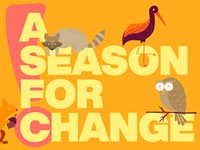
Calendar preview: A Season for Change
Sep 10, 2020 -

Calendar preview: Spring screening
May 11, 2020 - More »
Latest in Literature
More by Rachel Crawford
-

Political disquiet
Feb 26, 2020 - More »
